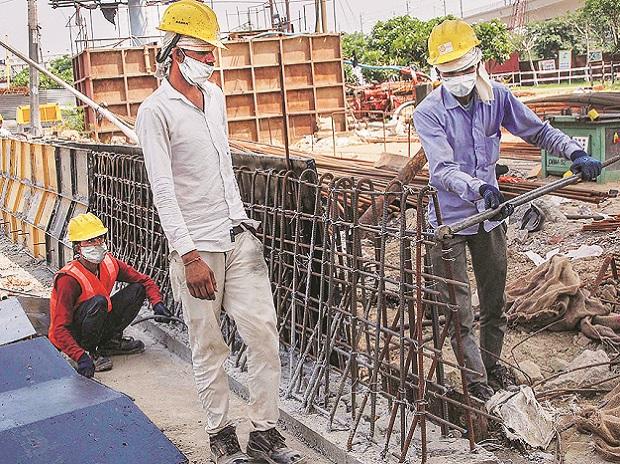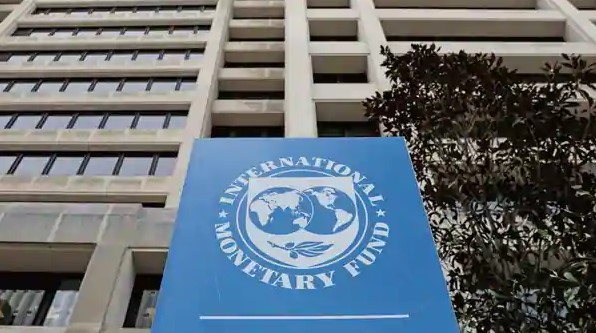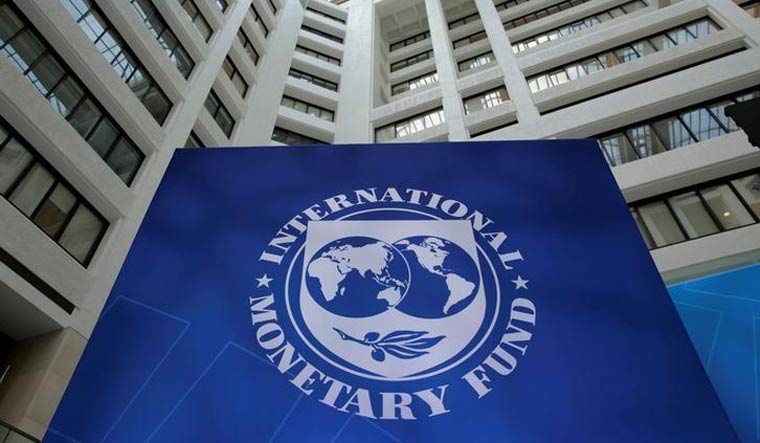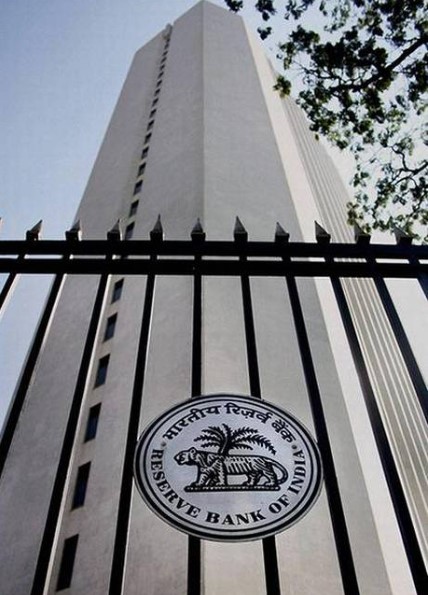NSE IMF Webinar - Covid-19 and beyond: IMF’s take on the world economy and prospects for India
NSE IMF Webinar - Covid-19 and beyond: IMF’s take on the world economy and prospects for India
India has more scope for policy support despite limited fiscal space: IMF
Business Standard
India has more scope for policy support despite limited fiscal space: IMF
Says the country's measures are tilted towards 'below-the-line' support such as food subsidy and other measures, rather than direct fiscal spending
Anup Roy|29 July 2020
The stimulus measures taken by India are substantial, but there is more scope for such measures even after considering the limited fiscal space, according to senior officials of the International Monetary Fund (IMF).
India’s measures are more tilted towards ‘below-the-line’ support such as food subsidy and other policy measures, rather than direct fiscal spending. In the Rs 20 trillion package announced by the government, roughly about Rs 2 trillion is direct monetary support, while the rest are in the form of policy measures and enhancements of guarantees and liquidity measures. Since then, the government has also increased its food security measures for households till at least November.
“The above-the-line spending and revenue measures are slightly below average for an emerging markets, of course, much less than industrial countries, but we are broadly in support of these,” said Ranil Salgado, Mission Chief for India at IMF.
Most of the support
“This is an unusual emergency. But we do believe that India, despite its limited fiscal space, could provide more above the line support. Some in the government are worried about retaining some policy power if there is a second wave (of virus infection). We do see scope for further fiscal support, as well as we still believe there could be potential for further monetary policy support as long as inflation continues to fall as we expect,” Salgado said at a webinar organized by NSE and IMF on the world economy in Covid times and beyond.
According to Salgado, it is important that as soon as the crisis is over, India must urgently return to a fiscal consolidation path. He cited credit rating agencies that have said they would look through Covid crisis, but their concern is that India must ensure that growth for the medium term remain high, and that there should be fiscal consolidation after the present crisis.
IMF expects India’s growth rate to contract sharply to a negative 4.5 per cent for 2020. This was revised in June from its earlier estimate of 1.9 per cent.
“This downward revision reflects extended lockdown, which was more than expected, and the spread of virus, which has not been contained yet unfortunately,” said Changyong Rhee, Director of the Asia and Pacific Department at the IMF.
The growth in Asia will also be hamped substantially, but importantly, IMF expects the output losses due to Covid-19 to be permanent. “Why we are saying is that the growth rate by the end of 2022 will be 5 per cent lower than what was predicted before the crisis. If you exclude China, the output loss would be much larger for other Asian economies,” said Rhee in the webinar.

IMF says containing spread of coronavirus pandemic policy priority for India to make recovery sustainable
Livemint
IMF says containing spread of coronavirus pandemic policy priority for India to make recovery sustainable
Raising concern over rising confirmed cases of covid-19 on a daily basis, Ranil Salgado, Assistant Director at Asia Pacific division of IMF said high frequency indicators such as Google Mobility suggest that economic recovery has flattened after picking up in early June
Asit Ranjan Mishra|29 July 2020
The International Monetary Fund on Wednesday said India has policy space-both on the fiscal and monetary policy side-- to raise resources in order to put the economy on the growth path but needs to urgently contain the spread of the coronavirus pandemic on a priority to make economic recovery sustainable.
“Containing this virus first is very important. Without containing the covid-19 virus, the economic recovery will be very difficult. Protecting people’s lives and their livelihood in the short term period will provide the basis for economic recovery," Changyong Rhee, Director at the Asia Pacific of IMF said addressing a webinar jointly organized by National Stock Exchange and the IMF.
Raising concern over rising confirmed cases of covid-19 on a daily basis, Ranil Salgado, Assistant Director at Asia Pacific division of IMF said high frequency indicators such as Google Mobility suggest that economic recovery has flattened after picking up in early June. “Concern we have is that things have started to plateau as the positive impact from exit is not as strong as the negative impact of the lockdown," he added.
On the fiscal support by the Indian government so far, Salgado said India’s above the line fiscal support which is included in the deficit is 1.9% of GDP while the below the line fiscal support including government guarantees is 4.9% of GDP.
While recognizing that going into the covid-19 crisis, India had limited fiscal space available, Rhee said in an extreme situation, where India needs to issue a large amount of government bond, some degree of monetization of deficit may be unavoidable. “But that has to be met with some concrete plan to get back to normal without hurting the central bank independence," he said.
“If you look at what the credit rating agencies have said in the past couple of months, they are willing to look through the covid-19 crisis. Their concern is growth in the medium term remains high and there is fiscal consolidation after the covid-19 crisis," Salgado added.
Salgado said IMF expects food price to continue to gradually decline in the current fiscal year from the shock increase in end-2019. “This gives significant scope for the Reserve Bank of India (RBI) to support the economy. We still see scope for the RBI to further reduce policy rate, at least to maintain accommodative liquidity condition as long as decline in headline inflation continues as we expect," he added.
Since March, RBI has lowered repo rate by 115 bps and reverse repo rate by 145 bps to boost liquidity in the banking system.
Though India stands out for the structural reforms it announced during the coronavirus pandemic, Salgado said IMF believes these are beneficial in the medium to long term than for immediate growth prospects. “There is a long reform agenda that needs further efforts including land, labour, trade restrictions, continued progress on infrastructure investments which will boost growth in medium term," he added.
Salgado said there are concerns in corporate sector vulnerabilities. “Outstanding corporate debt and corporate leverage ratio in India have been growing. These are something to watch especially given the covid-19 shock is probably affecting the corporate sector of India. We have equivalent concerns for MSMEs as they are also struggling through the covid-19 crisis, though there is less data available," he added.

IMF sees scope for more monetary and fiscal stimulus in India
The Week
IMF sees scope for more monetary and fiscal stimulus in India
Monetary policy support could continue as long as inflation keeps falling: IMF
Nachiket Kelkar|29 July 2020
There is further scope for a monetary as well as fiscal stimulus in India, but it will also have to return quickly to fiscal consolidation once the COVID-19 pandemic is behind us, top officials of the International Monetary Fund said on Wednesday.
Speaking in a webinar organised by the NSE, the officials called for continued reforms in India’s banking sector and the need to push for privatisation of profitable companies, a move that would free up more resources for the government.
In May this year, the centre announced a Rs 20 lakh crore economic package. However a lot it was in the form of credit guarantees, apart from several structural reforms. Ranil Salgado, mission chief for India at the IMF said that overall the stimulus was substantial, but the explicit spending measures were average or below average, compared to some other emerging markets and much less than the industrialised economies.
“This is an unusual emergency. We do believe that India, despite its limited fiscal space, could maybe provide above the line support. It’s possible they are retaining some policy power for later down the line. We do see scope for further fiscal support as well as we still think there could be potential for monetary policy support as long as inflation continues to fall,” Salgado said.
India’s fiscal deficit touched Rs 4.66 lakh crore or 58.6 per cent of the budget estimate in just the first two months of the current financial year. India Ratings and Research expects India’s fiscal deficit to touch 7.6 per cent in 2020-21, given the various fiscal stimulus measures announced.
IMF officials feel a privatisation push could make additional resources available for the government.
“We support efforts to privatise, especially public sector units, where there is not a clear reason, clear benefits for them to be publicly owned or run. We do see significant scope not just from an economic efficiency point of view, but also to provide additional resources to the government, at a time the government does need those additional resources,” said Salgado.
In June, IMF downgraded India’s economic growth forecasts; it sees a sharp contraction of 4.5 per cent in the year ending March 2021, compared with 1.9 per cent growth it had expected earlier.
Salgado said the COVID-19 pandemic may put further stress on the banking sector. The RBI in its financial stability report had also noted that gross non-performing assets could touch 12.5 per cent in the current financial year.
“Before the COVID shock, a large part of the discussion was what we are calling India’s credit crunch. Those reflect stresses in the banking system as well as stresses in the non-bank financial sector. Bank credit these days has roughly stabilised at 6 per cent, but for India that is relatively low, but the positive there is at least, it’s holding up,” he said.
The IMF official also raised concerns over rising corporate debt, which he said would have to be watched out for.
“Outstanding corporate debt in India has been growing and corporate regulatory issues have also been growing. These are something to watch, especially given the COVID shock is affecting the corporate sectors. We have equivalent concern with MSMEs (micro, small and medium enterprises), as they are struggling through the COVID crisis,” he added.
The centre imposed a nationwide lockdown to curb the COVID-19 pandemic, which had a huge impact across sectors in April and May. While, the government started lifting the lockdown from June and several leading indicators like the manufacturing PMI (purchasing managers index) rose in June, the IMF officials are concerned that the cases continue to rise in India and point that the exit is not as strong as the negative impact from the lockdown.
IMF has projected that the global economy will contract 4.9 per cent this year. The expectation was that there will be a faster recovery in 2021, led by the private sector. However, now there is some uncertainty over this assumption and there are worries that policy makers, particularly in the Asia Pacific region, will not have enough space to support economies next year.
“We are expecting that in 2021, the growth rates will be led by the private sector. For various reasons, we are little bit uncertain, whether this assumption of this private sector-led growth can happen. If that forecast is not realised, what we worry about is Asia policy makers will not have enough policy space to provide the level of support, they have done in 2020,” said Changyong Rhee, director, Asia Pacific department at IMF.
“This year, compared with Latin America, United States and Europe, Asia has been doing relatively better. But, in 2021, whether we can expect little bit faster growth rate in Asia, that is a big question,” he added.

RBI must continue monetary easing policy, says IMF official
The Hindu
RBI must continue monetary easing policy, says IMF official
Bureau|29 July 2020
Asia to undergo ‘deeper contraction, protracted recovery’
The Reserve Bank of India (RBI) will have to continue its accommodative monetary stance as COVID-19 cases are on the rise in India and economic recovery would be slow going forward, a senior official at the International Monetary Fund (IMF) said.
“There is scope for further easing [of policy rates] and additional measures [by the RBI],” said Ranil Salgado, assistant director, Asia Pacific, IMF, in a webinar.
He said the RBI had adopted an accommodative monetary policy stance amid limited fiscal space.
Since March, the RBI had lowered the repo rate by 115 basis points and reverse repo by 145 bps boosting liquidity, he said, adding additional measures were focused on increasing liquidity in parts of the financial system with largest needs, easing public financing and financial sector balance sheet pressures.
He said recent structural reforms undertaken by the government would support medium-term growth. But more efforts were needed with respect to land, labour and trade.
Observing that the sharp rise in COVID-19 cases despite lockdowns was of concern, he said the pandemic could worsen a credit crunch and India needed to address corporate sector vulnerability.
Changyong Rhee, director Asia and Pacific, IMF, said as per IMF’s June World Economic Outlook, the Asia Pacific region would experience a protracted recovery. On the outlook for Asia, he said: “There will be deeper contraction and a protracted recovery as against the forecast made in April”.


